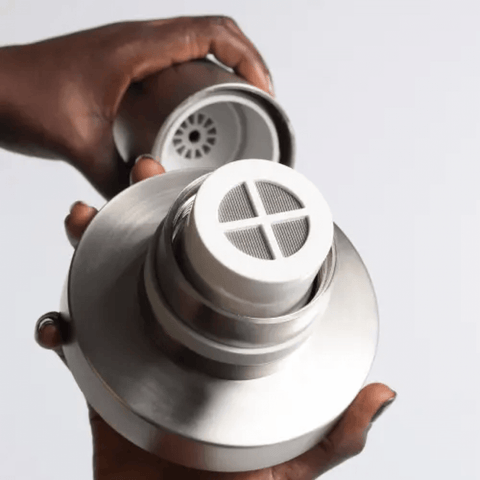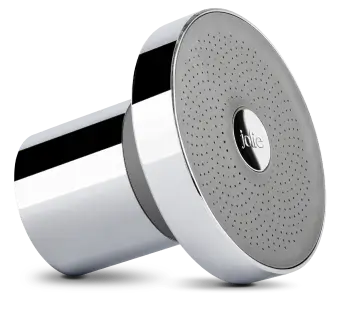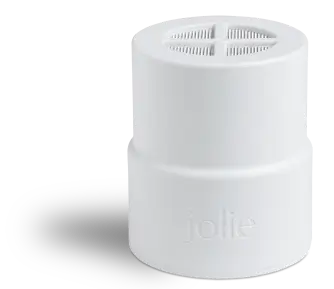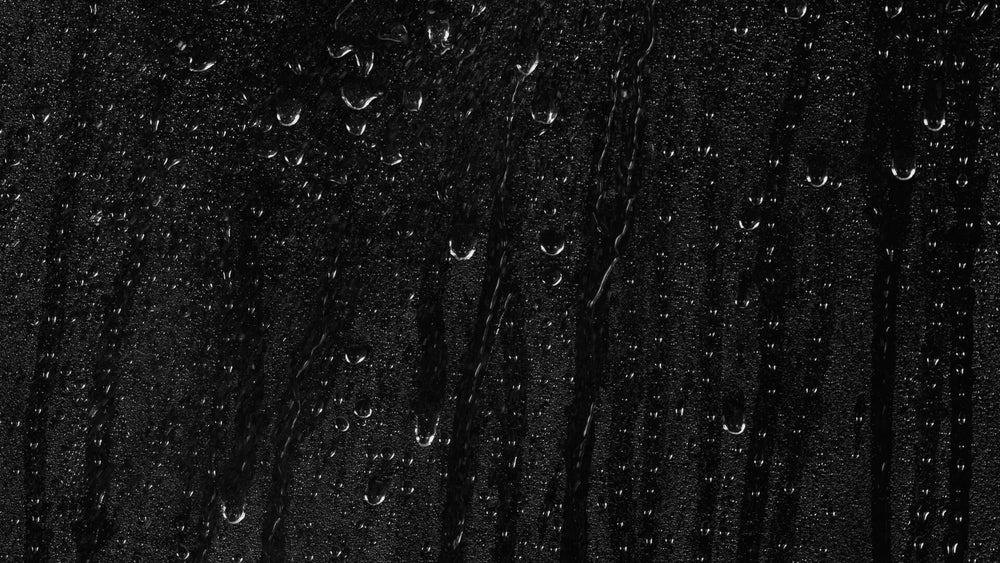window.productSubcriptionBundle = {"id":7285536194717,"title":"The Jolie Filtered Showerhead (With Subscription)","handle":"test-dev-the-filtered-showerhead","description":"\u003cmeta charset=\"utf-8\"\u003e\n\u003cdiv data-mce-fragment=\"1\" class=\"font-body font-light text-sm lg:text-base text-black mt-4 max-w-sm mx-auto\"\u003eThe most fundamental part of your daily routine, The Jolie Filtered Showerhead removes chlorine, heavy metals and other chemicals from your water for better skin, hair, and wellbeing.\u003c\/div\u003e\n\u003cdiv data-mce-fragment=\"1\" class=\"flex flex-col justify-center items-center mt-8\"\u003e\n\u003cdiv data-mce-fragment=\"1\" class=\"flex items-center\"\u003e\u003c\/div\u003e\n\u003c\/div\u003e","published_at":"2022-02-17T07:02:15-05:00","created_at":"2022-02-17T07:02:15-05:00","vendor":"Jolie","type":"Health \u0026 Beauty","tags":["TryNowAutomated","Verishop"],"price":9800,"price_min":9800,"price_max":9800,"available":true,"price_varies":false,"compare_at_price":16900,"compare_at_price_min":16900,"compare_at_price_max":16900,"compare_at_price_varies":false,"variants":[{"id":41980490580125,"title":"Modern Chrome","option1":"Modern Chrome","option2":null,"option3":null,"sku":"SHWR-MC-850036402091-S","requires_shipping":true,"taxable":true,"featured_image":{"id":40028920054053,"product_id":7285536194717,"position":1,"created_at":"2022-12-01T15:05:01-05:00","updated_at":"2024-02-05T16:47:55-05:00","alt":null,"width":1080,"height":1080,"src":"\/\/jolieskinco.com\/cdn\/shop\/products\/SideAngle-Chrome_Grey.png?v=1707169675","variant_ids":[41980490580125]},"available":true,"name":"The Jolie Filtered Showerhead (With Subscription) - Modern Chrome","public_title":"Modern Chrome","options":["Modern Chrome"],"price":9800,"weight":1588,"compare_at_price":16900,"inventory_management":"shopify","barcode":"850036402091","featured_media":{"alt":null,"id":32355945578789,"position":1,"preview_image":{"aspect_ratio":1.0,"height":1080,"width":1080,"src":"\/\/jolieskinco.com\/cdn\/shop\/products\/SideAngle-Chrome_Grey.png?v=1707169675"}},"requires_selling_plan":false,"selling_plan_allocations":[{"price_adjustments":[{"position":1,"price":15200},{"position":2,"price":3500}],"price":15200,"compare_at_price":9800,"per_delivery_price":15200,"selling_plan_id":811663517,"selling_plan_group_id":"85bf976274e79b5cb3c67862bffb70a7c0e566dd"}],"quantity_rule":{"min":1,"max":null,"increment":1}},{"id":41980490547357,"title":"Brushed Steel","option1":"Brushed Steel","option2":null,"option3":null,"sku":"SHWR-BS-850036402084-S","requires_shipping":true,"taxable":true,"featured_image":{"id":40028927983909,"product_id":7285536194717,"position":2,"created_at":"2022-12-01T15:06:19-05:00","updated_at":"2025-06-25T06:41:01-04:00","alt":null,"width":1080,"height":1080,"src":"\/\/jolieskinco.com\/cdn\/shop\/products\/Steel_Taupe.png?v=1750848061","variant_ids":[41980490547357]},"available":true,"name":"The Jolie Filtered Showerhead (With Subscription) - Brushed Steel","public_title":"Brushed Steel","options":["Brushed Steel"],"price":9800,"weight":1588,"compare_at_price":16900,"inventory_management":"shopify","barcode":"","featured_media":{"alt":null,"id":32355953901861,"position":2,"preview_image":{"aspect_ratio":1.0,"height":1080,"width":1080,"src":"\/\/jolieskinco.com\/cdn\/shop\/products\/Steel_Taupe.png?v=1750848061"}},"requires_selling_plan":false,"selling_plan_allocations":[{"price_adjustments":[{"position":1,"price":15200},{"position":2,"price":3500}],"price":15200,"compare_at_price":9800,"per_delivery_price":15200,"selling_plan_id":811663517,"selling_plan_group_id":"85bf976274e79b5cb3c67862bffb70a7c0e566dd"}],"quantity_rule":{"min":1,"max":null,"increment":1}},{"id":41980490678429,"title":"Jet Black","option1":"Jet Black","option2":null,"option3":null,"sku":"SHWR-JB-850036402077-S","requires_shipping":true,"taxable":true,"featured_image":{"id":32105386967197,"product_id":7285536194717,"position":4,"created_at":"2022-02-17T07:02:32-05:00","updated_at":"2025-06-25T06:41:01-04:00","alt":null,"width":3648,"height":3648,"src":"\/\/jolieskinco.com\/cdn\/shop\/products\/Jolie_Filtered_Showerhead_-_Side-6_da94b1ee-8d42-4ccf-aea8-f58067b053af.jpg?v=1750848061","variant_ids":[41980490678429]},"available":true,"name":"The Jolie Filtered Showerhead (With Subscription) - Jet Black","public_title":"Jet Black","options":["Jet Black"],"price":9800,"weight":1588,"compare_at_price":16900,"inventory_management":"shopify","barcode":"","featured_media":{"alt":null,"id":24413041459357,"position":4,"preview_image":{"aspect_ratio":1.0,"height":3648,"width":3648,"src":"\/\/jolieskinco.com\/cdn\/shop\/products\/Jolie_Filtered_Showerhead_-_Side-6_da94b1ee-8d42-4ccf-aea8-f58067b053af.jpg?v=1750848061"}},"requires_selling_plan":false,"selling_plan_allocations":[{"price_adjustments":[{"position":1,"price":15200},{"position":2,"price":3500}],"price":15200,"compare_at_price":9800,"per_delivery_price":15200,"selling_plan_id":811663517,"selling_plan_group_id":"85bf976274e79b5cb3c67862bffb70a7c0e566dd"}],"quantity_rule":{"min":1,"max":null,"increment":1}},{"id":45569197474085,"title":"Brushed Gold","option1":"Brushed Gold","option2":null,"option3":null,"sku":"SHWR-BG-850036402206","requires_shipping":true,"taxable":true,"featured_image":{"id":46164855554341,"product_id":7285536194717,"position":3,"created_at":"2024-05-16T09:57:47-04:00","updated_at":"2025-06-25T06:41:01-04:00","alt":null,"width":3360,"height":2241,"src":"\/\/jolieskinco.com\/cdn\/shop\/files\/BrushedGold.png?v=1750848061","variant_ids":[45569197474085]},"available":true,"name":"The Jolie Filtered Showerhead (With Subscription) - Brushed Gold","public_title":"Brushed Gold","options":["Brushed Gold"],"price":9800,"weight":1588,"compare_at_price":16900,"inventory_management":"shopify","barcode":"850036402206","featured_media":{"alt":null,"id":38800978084133,"position":3,"preview_image":{"aspect_ratio":1.499,"height":2241,"width":3360,"src":"\/\/jolieskinco.com\/cdn\/shop\/files\/BrushedGold.png?v=1750848061"}},"requires_selling_plan":false,"selling_plan_allocations":[{"price_adjustments":[{"position":1,"price":15200},{"position":2,"price":3500}],"price":15200,"compare_at_price":9800,"per_delivery_price":15200,"selling_plan_id":811663517,"selling_plan_group_id":"85bf976274e79b5cb3c67862bffb70a7c0e566dd"}],"quantity_rule":{"min":1,"max":null,"increment":1}},{"id":47893025128741,"title":"Vibrant Red","option1":"Vibrant Red","option2":null,"option3":null,"sku":"SHWR-VR-850036402220-S","requires_shipping":true,"taxable":true,"featured_image":{"id":32105386868893,"product_id":7285536194717,"position":5,"created_at":"2022-02-17T07:02:32-05:00","updated_at":"2025-06-25T06:41:01-04:00","alt":null,"width":3648,"height":3648,"src":"\/\/jolieskinco.com\/cdn\/shop\/products\/Jolie_Filtered_Showerhead_-_Side-3_c5ad9762-ec00-4b42-86b3-ca599db1fb47.jpg?v=1750848061","variant_ids":[47893025128741]},"available":true,"name":"The Jolie Filtered Showerhead (With Subscription) - Vibrant Red","public_title":"Vibrant Red","options":["Vibrant Red"],"price":9800,"weight":1588,"compare_at_price":16900,"inventory_management":"shopify","barcode":"850036402220","featured_media":{"alt":null,"id":24413041361053,"position":5,"preview_image":{"aspect_ratio":1.0,"height":3648,"width":3648,"src":"\/\/jolieskinco.com\/cdn\/shop\/products\/Jolie_Filtered_Showerhead_-_Side-3_c5ad9762-ec00-4b42-86b3-ca599db1fb47.jpg?v=1750848061"}},"requires_selling_plan":false,"selling_plan_allocations":[{"price_adjustments":[{"position":1,"price":15200},{"position":2,"price":3500}],"price":15200,"compare_at_price":9800,"per_delivery_price":15200,"selling_plan_id":811663517,"selling_plan_group_id":"85bf976274e79b5cb3c67862bffb70a7c0e566dd"}],"quantity_rule":{"min":1,"max":null,"increment":1}}],"images":["\/\/jolieskinco.com\/cdn\/shop\/products\/SideAngle-Chrome_Grey.png?v=1707169675","\/\/jolieskinco.com\/cdn\/shop\/products\/Steel_Taupe.png?v=1750848061","\/\/jolieskinco.com\/cdn\/shop\/files\/BrushedGold.png?v=1750848061","\/\/jolieskinco.com\/cdn\/shop\/products\/Jolie_Filtered_Showerhead_-_Side-6_da94b1ee-8d42-4ccf-aea8-f58067b053af.jpg?v=1750848061","\/\/jolieskinco.com\/cdn\/shop\/products\/Jolie_Filtered_Showerhead_-_Side-3_c5ad9762-ec00-4b42-86b3-ca599db1fb47.jpg?v=1750848061","\/\/jolieskinco.com\/cdn\/shop\/files\/Guava_Red.webp?v=1750848061"],"featured_image":"\/\/jolieskinco.com\/cdn\/shop\/products\/SideAngle-Chrome_Grey.png?v=1707169675","options":["Color"],"media":[{"alt":null,"id":32355945578789,"position":1,"preview_image":{"aspect_ratio":1.0,"height":1080,"width":1080,"src":"\/\/jolieskinco.com\/cdn\/shop\/products\/SideAngle-Chrome_Grey.png?v=1707169675"},"aspect_ratio":1.0,"height":1080,"media_type":"image","src":"\/\/jolieskinco.com\/cdn\/shop\/products\/SideAngle-Chrome_Grey.png?v=1707169675","width":1080},{"alt":null,"id":32355953901861,"position":2,"preview_image":{"aspect_ratio":1.0,"height":1080,"width":1080,"src":"\/\/jolieskinco.com\/cdn\/shop\/products\/Steel_Taupe.png?v=1750848061"},"aspect_ratio":1.0,"height":1080,"media_type":"image","src":"\/\/jolieskinco.com\/cdn\/shop\/products\/Steel_Taupe.png?v=1750848061","width":1080},{"alt":null,"id":38800978084133,"position":3,"preview_image":{"aspect_ratio":1.499,"height":2241,"width":3360,"src":"\/\/jolieskinco.com\/cdn\/shop\/files\/BrushedGold.png?v=1750848061"},"aspect_ratio":1.499,"height":2241,"media_type":"image","src":"\/\/jolieskinco.com\/cdn\/shop\/files\/BrushedGold.png?v=1750848061","width":3360},{"alt":null,"id":24413041459357,"position":4,"preview_image":{"aspect_ratio":1.0,"height":3648,"width":3648,"src":"\/\/jolieskinco.com\/cdn\/shop\/products\/Jolie_Filtered_Showerhead_-_Side-6_da94b1ee-8d42-4ccf-aea8-f58067b053af.jpg?v=1750848061"},"aspect_ratio":1.0,"height":3648,"media_type":"image","src":"\/\/jolieskinco.com\/cdn\/shop\/products\/Jolie_Filtered_Showerhead_-_Side-6_da94b1ee-8d42-4ccf-aea8-f58067b053af.jpg?v=1750848061","width":3648},{"alt":null,"id":24413041361053,"position":5,"preview_image":{"aspect_ratio":1.0,"height":3648,"width":3648,"src":"\/\/jolieskinco.com\/cdn\/shop\/products\/Jolie_Filtered_Showerhead_-_Side-3_c5ad9762-ec00-4b42-86b3-ca599db1fb47.jpg?v=1750848061"},"aspect_ratio":1.0,"height":3648,"media_type":"image","src":"\/\/jolieskinco.com\/cdn\/shop\/products\/Jolie_Filtered_Showerhead_-_Side-3_c5ad9762-ec00-4b42-86b3-ca599db1fb47.jpg?v=1750848061","width":3648},{"alt":null,"id":39989746991397,"position":6,"preview_image":{"aspect_ratio":1.499,"height":2241,"width":3360,"src":"\/\/jolieskinco.com\/cdn\/shop\/files\/Guava_Red.webp?v=1750848061"},"aspect_ratio":1.499,"height":2241,"media_type":"image","src":"\/\/jolieskinco.com\/cdn\/shop\/files\/Guava_Red.webp?v=1750848061","width":3360}],"requires_selling_plan":false,"selling_plan_groups":[{"id":"85bf976274e79b5cb3c67862bffb70a7c0e566dd","name":"The Jolie Filtered Showerhead (with subscription)","options":[{"name":"Filters delivered \u0026 billed every 3 months, starting 3 months after receiving your Jolie","position":1,"values":["The Filtered Showerhead (with subscription)"]}],"selling_plans":[{"id":811663517,"name":"Filters delivered \u0026 billed every 3 months, starting 3 months after receiving your Jolie","description":"","options":[{"name":"Filters delivered \u0026 billed every 3 months, starting 3 months after receiving your Jolie","position":1,"value":"The Filtered Showerhead (with subscription)"}],"recurring_deliveries":true,"price_adjustments":[{"order_count":1,"position":1,"value_type":"price","value":15200},{"order_count":null,"position":2,"value_type":"price","value":3500}],"checkout_charge":{"value_type":"percentage","value":100}}],"app_id":"4836205"}],"content":"\u003cmeta charset=\"utf-8\"\u003e\n\u003cdiv data-mce-fragment=\"1\" class=\"font-body font-light text-sm lg:text-base text-black mt-4 max-w-sm mx-auto\"\u003eThe most fundamental part of your daily routine, The Jolie Filtered Showerhead removes chlorine, heavy metals and other chemicals from your water for better skin, hair, and wellbeing.\u003c\/div\u003e\n\u003cdiv data-mce-fragment=\"1\" class=\"flex flex-col justify-center items-center mt-8\"\u003e\n\u003cdiv data-mce-fragment=\"1\" class=\"flex items-center\"\u003e\u003c\/div\u003e\n\u003c\/div\u003e"};
window.productSubcriptionBundleWithWrapper = {"id":10273261158693,"title":"The Jolie Filtered Showerhead (With Subscription)","handle":"the-jolie-filtered-showerhead-with-subscription","description":"\u003cmeta charset=\"utf-8\"\u003e\n\u003cdiv data-mce-fragment=\"1\" class=\"font-body font-light text-sm lg:text-base text-black mt-4 max-w-sm mx-auto\"\u003eThe most fundamental part of your daily routine, The Jolie Filtered Showerhead removes chlorine, heavy metals and other chemicals from your water for better skin, hair, and wellbeing.\u003c\/div\u003e\n\u003cdiv data-mce-fragment=\"1\" class=\"flex flex-col justify-center items-center mt-8\"\u003e\n\u003cdiv data-mce-fragment=\"1\" class=\"flex items-center\"\u003e\u003c\/div\u003e\n\u003c\/div\u003e","published_at":"2025-11-27T17:14:06-05:00","created_at":"2025-11-27T15:51:08-05:00","vendor":"Jolie","type":"Health \u0026 Beauty","tags":["TryNowAutomated","Verishop"],"price":12200,"price_min":12200,"price_max":12200,"available":true,"price_varies":false,"compare_at_price":15200,"compare_at_price_min":15200,"compare_at_price_max":16500,"compare_at_price_varies":true,"variants":[{"id":51661581517093,"title":"Modern Chrome","option1":"Modern Chrome","option2":null,"option3":null,"sku":"SHWR-MC-850036402091-S","requires_shipping":true,"taxable":true,"featured_image":{"id":40028920054053,"product_id":10273261158693,"position":1,"created_at":"2022-12-01T15:05:01-05:00","updated_at":"2024-02-05T16:47:55-05:00","alt":null,"width":1080,"height":1080,"src":"\/\/jolieskinco.com\/cdn\/shop\/products\/SideAngle-Chrome_Grey.png?v=1707169675","variant_ids":[51661581517093]},"available":true,"name":"The Jolie Filtered Showerhead (With Subscription) - Modern Chrome","public_title":"Modern Chrome","options":["Modern Chrome"],"price":12200,"weight":1588,"compare_at_price":16500,"inventory_management":"shopify","barcode":"850036402091","featured_media":{"alt":null,"id":32355945578789,"position":1,"preview_image":{"aspect_ratio":1.0,"height":1080,"width":1080,"src":"\/\/jolieskinco.com\/cdn\/shop\/products\/SideAngle-Chrome_Grey.png?v=1707169675"}},"requires_selling_plan":false,"selling_plan_allocations":[],"quantity_rule":{"min":1,"max":null,"increment":1}},{"id":51661581484325,"title":"Brushed Steel","option1":"Brushed Steel","option2":null,"option3":null,"sku":"SHWR-BS-850036402084-S-GIFT","requires_shipping":true,"taxable":true,"featured_image":{"id":40028927983909,"product_id":10273261158693,"position":2,"created_at":"2022-12-01T15:06:19-05:00","updated_at":"2025-06-25T06:41:01-04:00","alt":null,"width":1080,"height":1080,"src":"\/\/jolieskinco.com\/cdn\/shop\/products\/Steel_Taupe.png?v=1750848061","variant_ids":[51661581484325]},"available":true,"name":"The Jolie Filtered Showerhead (With Subscription) - Brushed Steel","public_title":"Brushed Steel","options":["Brushed Steel"],"price":12200,"weight":1588,"compare_at_price":15200,"inventory_management":"shopify","barcode":"","featured_media":{"alt":null,"id":32355953901861,"position":2,"preview_image":{"aspect_ratio":1.0,"height":1080,"width":1080,"src":"\/\/jolieskinco.com\/cdn\/shop\/products\/Steel_Taupe.png?v=1750848061"}},"requires_selling_plan":false,"selling_plan_allocations":[],"quantity_rule":{"min":1,"max":null,"increment":1}},{"id":51661581549861,"title":"Jet Black","option1":"Jet Black","option2":null,"option3":null,"sku":"SHWR-JB-850036402077-S","requires_shipping":true,"taxable":true,"featured_image":{"id":32105386967197,"product_id":10273261158693,"position":4,"created_at":"2022-02-17T07:02:32-05:00","updated_at":"2025-06-25T06:41:01-04:00","alt":null,"width":3648,"height":3648,"src":"\/\/jolieskinco.com\/cdn\/shop\/products\/Jolie_Filtered_Showerhead_-_Side-6_da94b1ee-8d42-4ccf-aea8-f58067b053af.jpg?v=1750848061","variant_ids":[51661581549861]},"available":true,"name":"The Jolie Filtered Showerhead (With Subscription) - Jet Black","public_title":"Jet Black","options":["Jet Black"],"price":12200,"weight":1588,"compare_at_price":16500,"inventory_management":"shopify","barcode":"","featured_media":{"alt":null,"id":24413041459357,"position":4,"preview_image":{"aspect_ratio":1.0,"height":3648,"width":3648,"src":"\/\/jolieskinco.com\/cdn\/shop\/products\/Jolie_Filtered_Showerhead_-_Side-6_da94b1ee-8d42-4ccf-aea8-f58067b053af.jpg?v=1750848061"}},"requires_selling_plan":false,"selling_plan_allocations":[],"quantity_rule":{"min":1,"max":null,"increment":1}},{"id":51661581582629,"title":"Brushed Gold","option1":"Brushed Gold","option2":null,"option3":null,"sku":"SHWR-BG-850036402206-S","requires_shipping":true,"taxable":true,"featured_image":{"id":46164855554341,"product_id":10273261158693,"position":3,"created_at":"2024-05-16T09:57:47-04:00","updated_at":"2025-06-25T06:41:01-04:00","alt":null,"width":3360,"height":2241,"src":"\/\/jolieskinco.com\/cdn\/shop\/files\/BrushedGold.png?v=1750848061","variant_ids":[51661581582629]},"available":true,"name":"The Jolie Filtered Showerhead (With Subscription) - Brushed Gold","public_title":"Brushed Gold","options":["Brushed Gold"],"price":12200,"weight":1588,"compare_at_price":16500,"inventory_management":"shopify","barcode":"850036402206","featured_media":{"alt":null,"id":38800978084133,"position":3,"preview_image":{"aspect_ratio":1.499,"height":2241,"width":3360,"src":"\/\/jolieskinco.com\/cdn\/shop\/files\/BrushedGold.png?v=1750848061"}},"requires_selling_plan":false,"selling_plan_allocations":[],"quantity_rule":{"min":1,"max":null,"increment":1}},{"id":51661581615397,"title":"Vibrant Red","option1":"Vibrant Red","option2":null,"option3":null,"sku":"SHWR-VR-850036402220-S-GIFT","requires_shipping":true,"taxable":true,"featured_image":{"id":32105386868893,"product_id":10273261158693,"position":5,"created_at":"2022-02-17T07:02:32-05:00","updated_at":"2025-06-25T06:41:01-04:00","alt":null,"width":3648,"height":3648,"src":"\/\/jolieskinco.com\/cdn\/shop\/products\/Jolie_Filtered_Showerhead_-_Side-3_c5ad9762-ec00-4b42-86b3-ca599db1fb47.jpg?v=1750848061","variant_ids":[51661581615397]},"available":true,"name":"The Jolie Filtered Showerhead (With Subscription) - Vibrant Red","public_title":"Vibrant Red","options":["Vibrant Red"],"price":12200,"weight":1588,"compare_at_price":16500,"inventory_management":"shopify","barcode":"850036402220","featured_media":{"alt":null,"id":24413041361053,"position":5,"preview_image":{"aspect_ratio":1.0,"height":3648,"width":3648,"src":"\/\/jolieskinco.com\/cdn\/shop\/products\/Jolie_Filtered_Showerhead_-_Side-3_c5ad9762-ec00-4b42-86b3-ca599db1fb47.jpg?v=1750848061"}},"requires_selling_plan":false,"selling_plan_allocations":[],"quantity_rule":{"min":1,"max":null,"increment":1}}],"images":["\/\/jolieskinco.com\/cdn\/shop\/products\/SideAngle-Chrome_Grey.png?v=1707169675","\/\/jolieskinco.com\/cdn\/shop\/products\/Steel_Taupe.png?v=1750848061","\/\/jolieskinco.com\/cdn\/shop\/files\/BrushedGold.png?v=1750848061","\/\/jolieskinco.com\/cdn\/shop\/products\/Jolie_Filtered_Showerhead_-_Side-6_da94b1ee-8d42-4ccf-aea8-f58067b053af.jpg?v=1750848061","\/\/jolieskinco.com\/cdn\/shop\/products\/Jolie_Filtered_Showerhead_-_Side-3_c5ad9762-ec00-4b42-86b3-ca599db1fb47.jpg?v=1750848061","\/\/jolieskinco.com\/cdn\/shop\/files\/Guava_Red.webp?v=1750848061"],"featured_image":"\/\/jolieskinco.com\/cdn\/shop\/products\/SideAngle-Chrome_Grey.png?v=1707169675","options":["Color"],"media":[{"alt":null,"id":32355945578789,"position":1,"preview_image":{"aspect_ratio":1.0,"height":1080,"width":1080,"src":"\/\/jolieskinco.com\/cdn\/shop\/products\/SideAngle-Chrome_Grey.png?v=1707169675"},"aspect_ratio":1.0,"height":1080,"media_type":"image","src":"\/\/jolieskinco.com\/cdn\/shop\/products\/SideAngle-Chrome_Grey.png?v=1707169675","width":1080},{"alt":null,"id":32355953901861,"position":2,"preview_image":{"aspect_ratio":1.0,"height":1080,"width":1080,"src":"\/\/jolieskinco.com\/cdn\/shop\/products\/Steel_Taupe.png?v=1750848061"},"aspect_ratio":1.0,"height":1080,"media_type":"image","src":"\/\/jolieskinco.com\/cdn\/shop\/products\/Steel_Taupe.png?v=1750848061","width":1080},{"alt":null,"id":38800978084133,"position":3,"preview_image":{"aspect_ratio":1.499,"height":2241,"width":3360,"src":"\/\/jolieskinco.com\/cdn\/shop\/files\/BrushedGold.png?v=1750848061"},"aspect_ratio":1.499,"height":2241,"media_type":"image","src":"\/\/jolieskinco.com\/cdn\/shop\/files\/BrushedGold.png?v=1750848061","width":3360},{"alt":null,"id":24413041459357,"position":4,"preview_image":{"aspect_ratio":1.0,"height":3648,"width":3648,"src":"\/\/jolieskinco.com\/cdn\/shop\/products\/Jolie_Filtered_Showerhead_-_Side-6_da94b1ee-8d42-4ccf-aea8-f58067b053af.jpg?v=1750848061"},"aspect_ratio":1.0,"height":3648,"media_type":"image","src":"\/\/jolieskinco.com\/cdn\/shop\/products\/Jolie_Filtered_Showerhead_-_Side-6_da94b1ee-8d42-4ccf-aea8-f58067b053af.jpg?v=1750848061","width":3648},{"alt":null,"id":24413041361053,"position":5,"preview_image":{"aspect_ratio":1.0,"height":3648,"width":3648,"src":"\/\/jolieskinco.com\/cdn\/shop\/products\/Jolie_Filtered_Showerhead_-_Side-3_c5ad9762-ec00-4b42-86b3-ca599db1fb47.jpg?v=1750848061"},"aspect_ratio":1.0,"height":3648,"media_type":"image","src":"\/\/jolieskinco.com\/cdn\/shop\/products\/Jolie_Filtered_Showerhead_-_Side-3_c5ad9762-ec00-4b42-86b3-ca599db1fb47.jpg?v=1750848061","width":3648},{"alt":null,"id":39989746991397,"position":6,"preview_image":{"aspect_ratio":1.499,"height":2241,"width":3360,"src":"\/\/jolieskinco.com\/cdn\/shop\/files\/Guava_Red.webp?v=1750848061"},"aspect_ratio":1.499,"height":2241,"media_type":"image","src":"\/\/jolieskinco.com\/cdn\/shop\/files\/Guava_Red.webp?v=1750848061","width":3360}],"requires_selling_plan":false,"selling_plan_groups":[],"content":"\u003cmeta charset=\"utf-8\"\u003e\n\u003cdiv data-mce-fragment=\"1\" class=\"font-body font-light text-sm lg:text-base text-black mt-4 max-w-sm mx-auto\"\u003eThe most fundamental part of your daily routine, The Jolie Filtered Showerhead removes chlorine, heavy metals and other chemicals from your water for better skin, hair, and wellbeing.\u003c\/div\u003e\n\u003cdiv data-mce-fragment=\"1\" class=\"flex flex-col justify-center items-center mt-8\"\u003e\n\u003cdiv data-mce-fragment=\"1\" class=\"flex items-center\"\u003e\u003c\/div\u003e\n\u003c\/div\u003e"};
window.filterSubcriptionBundle = {"id":7279876243613,"title":"The Replacement Filter Subscription","handle":"the-replacement-filter-2","description":"The Jolie Replacement Filter is the best-in-class shower filter on the market and is designed exclusively for the Jolie Filtered Showerhead. The replacement filter needs to be replaced every 90 days for better skin, hair, and wellbeing.","published_at":"2022-02-09T14:54:41-05:00","created_at":"2022-02-09T14:52:47-05:00","vendor":"Jolie","type":"","tags":["TryNowAutomated"],"price":0,"price_min":0,"price_max":0,"available":true,"price_varies":false,"compare_at_price":null,"compare_at_price_min":0,"compare_at_price_max":0,"compare_at_price_varies":false,"variants":[{"id":41945873580189,"title":"Default Title","option1":"Default Title","option2":null,"option3":null,"sku":"SHWR-FILTER-850036402060-F","requires_shipping":true,"taxable":true,"featured_image":null,"available":true,"name":"The Replacement Filter Subscription","public_title":null,"options":["Default Title"],"price":0,"weight":0,"compare_at_price":null,"inventory_management":"shopify","barcode":"850036402060","requires_selling_plan":true,"selling_plan_allocations":[{"price_adjustments":[{"position":1,"price":0},{"position":2,"price":3500}],"price":0,"compare_at_price":0,"per_delivery_price":0,"selling_plan_id":795213981,"selling_plan_group_id":"1be5f944c73d4fa86b03a272e25100ddecbe734d"},{"price_adjustments":[{"position":1,"price":2400}],"price":2400,"compare_at_price":0,"per_delivery_price":2400,"selling_plan_id":689828725029,"selling_plan_group_id":"1be5f944c73d4fa86b03a272e25100ddecbe734d"}],"quantity_rule":{"min":1,"max":null,"increment":1}}],"images":["\/\/jolieskinco.com\/cdn\/shop\/products\/FilterPDP-Front.png?v=1644436442"],"featured_image":"\/\/jolieskinco.com\/cdn\/shop\/products\/FilterPDP-Front.png?v=1644436442","options":["Title"],"media":[{"alt":null,"id":24357721931933,"position":1,"preview_image":{"aspect_ratio":1.0,"height":500,"width":500,"src":"\/\/jolieskinco.com\/cdn\/shop\/products\/FilterPDP-Front.png?v=1644436442"},"aspect_ratio":1.0,"height":500,"media_type":"image","src":"\/\/jolieskinco.com\/cdn\/shop\/products\/FilterPDP-Front.png?v=1644436442","width":500}],"requires_selling_plan":true,"selling_plan_groups":[{"id":"1be5f944c73d4fa86b03a272e25100ddecbe734d","name":"Replacement Filter (purchased alongside Filtered Showerhead)","options":[{"name":"Delivered every 3 months","position":1,"values":["Delivered every 3 months","3 Months"]}],"selling_plans":[{"id":795213981,"name":"Billed \u0026 delivered every 3 months at $35","description":"","options":[{"name":"Delivered every 3 months","position":1,"value":"Delivered every 3 months"}],"recurring_deliveries":true,"price_adjustments":[{"order_count":1,"position":1,"value_type":"price","value":0},{"order_count":null,"position":2,"value_type":"price","value":3500}],"checkout_charge":{"value_type":"percentage","value":100}},{"id":689828725029,"name":"{{H}} Delivered every 3 months - Discounted","description":"","options":[{"name":"Delivered every 3 months","position":1,"value":"3 Months"}],"recurring_deliveries":true,"price_adjustments":[{"order_count":null,"position":1,"value_type":"price","value":2400}],"checkout_charge":{"value_type":"percentage","value":100}}],"app_id":"4836205"}],"content":"The Jolie Replacement Filter is the best-in-class shower filter on the market and is designed exclusively for the Jolie Filtered Showerhead. The replacement filter needs to be replaced every 90 days for better skin, hair, and wellbeing."};
Discover why your hair gets frizzy after a shower and how to stop it naturally. Learn about the Jolie filtered showerhead's benefits for smooth, frizz-free locks!
Post-shower hair frizz is a common and frustrating problem that can turn a good hair day into a bad one in minutes. When hair absorbs excess moisture during a shower, it can swell and lose its smoothness, leading to frizz once it dries. It can also be attributed to shower water contaminants and their various drying/damaging effects on your hair and scalp. This can happen to any hair type, but it's especially problematic for those with curly or wavy hair, where frizz can cause a loss of definition and lead to a wild, unruly look. Addressing post-shower frizz is important not only for aesthetic reasons but also to maintain your hair's overall health and manageability. Effective strategies to combat frizz can help keep hair smooth, soft, and under control, leading to a more polished appearance.

Understanding Post-Shower Frizzy Hair
Post-shower hair frizz can be attributed to a combination of factors, with humidity levels, hair porosity, and hair texture playing significant roles in its development. Understanding these factors can help in managing and preventing frizz.
Factors Contributing to Frizz: Frizz generally occurs when the hair's outer cuticle layer is rough or raised, allowing moisture to penetrate and disrupt the smoothness of the strands. This can be triggered by using harsh shampoos or over-washing, both of which strip hair of its natural oils. Vigorous towel drying or brushing wet hair can also damage the cuticle, making it more prone to frizz.
Humidity Levels: Humidity plays a major role in post-shower frizz. When the air is humid, it contains a high amount of moisture, which is quickly absorbed by hair, causing it to swell and lose shape. This is especially noticeable with curly or wavy hair, where each strand can expand and create a frizzy effect. The higher the humidity, the more likely it is that hair will frizz. The whole state of Florida is doomed to suffer from the frightful frizz!
Hair Porosity: Hair porosity refers to how easily hair can absorb and retain moisture. High-porosity hair has open cuticles, allowing moisture to enter and leave quickly, leading to a greater chance of frizz. On the other hand, low-porosity hair has tightly closed cuticles, making it resistant to moisture but difficult to style when it becomes frizzy.

Hair Texture: Hair's natural texture also affects its propensity to frizz. Curly and wavy hair types are generally more prone to frizz due to their structure, which allows moisture to penetrate and causes curls to lose their defined shape. Straight hair can also experience frizz if it is damaged or has a high porosity, leading to a lack of smoothness.
Understanding these mechanisms can help you take targeted steps to minimize post-shower hair frizz, such as using moisture-locking products, gentle drying techniques, and protective hairstyles to keep your hair looking its best, even in challenging conditions.
Top Solutions for Taming Post-Shower Frizz:
1. Introduce Natural Remedies to Your Shower Routine
Natural remedies like coconut oil and apple cider vinegar are well-regarded for their ability to combat hair frizz, providing moisture, shine, and smoothing properties to unruly strands. Here's how they can help:
Coconut Oil Treatment: Coconut oil is prized for its deep moisturizing abilities. It penetrates the hair shaft to provide hydration, which can reduce frizz by smoothing the cuticle layer. Applying a small amount of coconut oil to damp hair and working it through the strands can create a barrier that locks in moisture and prevents humidity from causing frizz. Coconut oil also has natural emollient properties, helping to give hair a soft, glossy appearance without weighing it down.
Apple Cider Vinegar Rinse: Apple cider vinegar is known for its ability to balance the hair's pH and seal the cuticle. When the cuticle is smooth, it reflects light better and reduces frizz. An apple cider vinegar rinse involves mixing a small amount of vinegar with water and pouring it over the hair after shampooing. This helps to remove product buildup, close the cuticle, and restore the hair's natural acidity, leading to a shinier and smoother finish. For best results, use an apple cider vinegar rinse once a week to avoid drying out the hair.
2. Experiment with Different Styling Techniques
Here are a couple of tips to employ to help combat your frizz and keep your hair looking close-up ready:
Diffusing Method: Diffusing involves using a hair dryer attachment to distribute heat more evenly and gently. Unlike direct blow-drying, which can cause hair to become unruly, diffusing reduces frizz by minimizing air disruption, preserving the natural curl pattern, and enhancing volume without creating static.
Use a Silk Pillowcase: Switching to a silk pillowcase can also help combat frizz by reducing friction between your hair and the pillow while you sleep. Silk's smooth surface allows hair to glide without catching or tugging, preventing breakage and reducing frizz and tangling formation. This helps maintain your hairstyle overnight and contributes to healthier, less frizzy hair over time.

3. Use Specialized Shower Products
Treat yourself to the specialty products your hair deserves. Leave-in conditioners are excellent for combating frizz, providing a lightweight layer of moisture and protection that helps smooth the hair cuticle. By leaving the conditioner in the hair, it can continue to hydrate and shield against environmental factors like humidity, which are known to cause frizz. But there is one critical tool that can help guarantee the effectiveness of leave-in conditioner and all of the other products you use regularly: the Jolie Filtered Showerhead. Consistently ranked #1 in the hair care category of Thingtesting.com, a Jolie Filtered Showerhead can also be instrumental in reducing frizz. It filters out impurities like chlorine and heavy metals from the water, which can strip hair of its natural oils and cause dryness. Using filtered water reduces the risk of damage and promotes a healthier scalp, creating a smoother canvas for your hair. This can lead to less frizz after washing, as the hair retains its natural moisture and stays more luscious.
The Jolie Filtered Showerhead: Your Frizz-Free Solution
The Jolie Filtered Showerhead can be your secret weapon against post-shower hair frizz, thanks to its ability to remove impurities from your water supply. Tap water often contains chlorine, heavy metals, and other contaminants that strip hair of its natural oils, leading to dryness, breakage, and ultimately frizz. By filtering out these harsh elements, the Jolie Showerhead helps maintain the hair's moisture balance and strengthens its natural defenses against environmental stressors. This means that after you shower, your hair is less likely to puff up or become unmanageable due to excess dryness or chemical residue. Using the Jolie Filtered Showerhead leads to smoother, healthier hair and makes post-shower frizz a problem of the past, allowing you to enjoy shiny, manageable hair every day.

Combat Your Frizz with These Effective Solutions
Attacking your hair frizz problem is best with a multi-pronged solution. If your weapon of choice in the battle against frizz is a pitchfork, with each prong representing a unique solution, then the Jolie Filtered Showerhead is the handle that holds all of them together. Using leave-in conditioners, apple cider vinegar rinses, coconut oil and hair masks, and more are all wonderful solutions, but without pure, clean water to wash your hair and scalp with, all the residues left behind by your shower water will stop them before they’ve had the chance to become effective. Invest in a Jolie Filtered Showerhead today and watch as your frizz turns to fancy.
 Back to top
Back to top







